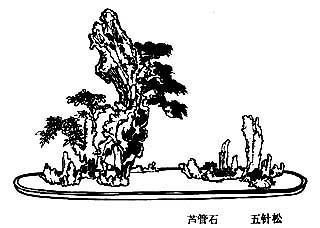Lun Yu 
 – Les Entretiens de Confucius
– Les Entretiens de Confucius
Le Maître échange propos, anecdotes, brèves paraboles et maximes avec ses disciples. Tr. Couvreur (fr), Legge (en) et Lau (en).
Lunyu XIX. 24. (508)
Chou suenn Ou chou dépréciait Confucius. Tzeu koung dit : « Toutes ses paroles n'auront aucun effet. La détraction ne saurait diminuer la réputation de Tchoung gni. La sagesse des autres hommes est comme une colline ou un monticule qu'il est possible de gravir. Tchoung gni est comme le soleil et la lune ; personne ne peut s'élever au-dessus de lui. Quand même on se séparerait de lui en rejetant sa doctrine, quel tort ferait-on à celui qui brille comme le soleil et la lune ? On montrerait seulement qu'on ne se connaît pas soi-même. »
Couvreur XIX.24.
Confucius is like the sun or moon, high above the reach of depreciation:– by Tsze-kung.
Shû-sun Wû-shû having spoken revilingly of Chung-nî, Tsze-kung said, "It is of no use doing so. Chung-nî cannot be reviled. The talents and virtue of other men are hillocks and mounds which may be stepped over. Chung-nî is the sun or moon, which it is not possible to step over. Although a man may wish to cut himself off from the sage, what harm can he do to the sun or moon? He only shows that he does not know his own capacity.
Legge XIX.24.
Shu-sun Wu-shu made defamatory remarks about Chung-m. Tzu- kung said, 'He is simply wasting his time. Chung-ni cannot be defamed. In other cases, men of excellence are like hills which one can climb over. Chung-ni is like the sun and the moon which one has no way of climbing over. Even if someone wanted to cut himself off from them, how could this detract from the sun and the moon? It would merely serve the more to show that he did not know his own measure.'
Lau [19:24]

Les Entretiens de Confucius – Lun Yu XIX. 24. (508) – Chinois off/on – Français/English
Alias the Lunyu, the Lun Yü, the Analects, les Entretiens du maître avec ses disciples.
Le Canon des Poèmes, Les Entretiens, La Grande Étude, Le Juste Milieu, Les Trois Caractères, Le Livre des Mutations, De la Voie et la Vertu, 300 poèmes Tang, L'Art de la guerre, Trente-six stratagèmes
Bienvenue, aide, notes, introduction, table.
Index – Contact – Haut de page























